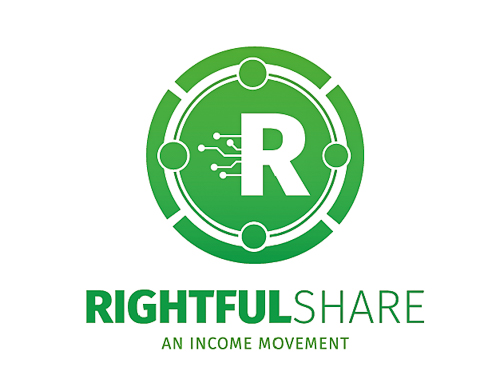
by Peter Knight | Feb 10, 2023 | News
“We need a new approach to addressing poverty in South Africa. The current system is not working and we can no longer pretend that there will be enough jobs for everyone. By bringing visibility to the benefits of a digital basic income transfer, we’re expanding the possibilities for South Africans and nourishing the creativity and entrepreneurial spirit present in the country ”, says Karen Jooste, Founder of RightfulShare.
The project began as a policy proposal in the South African parliament and has since moved into an independent initiative. Every month for one year, beneficiaries receive a digital basic income in GoodDollar to use as they choose.
Read the details in the full press release.
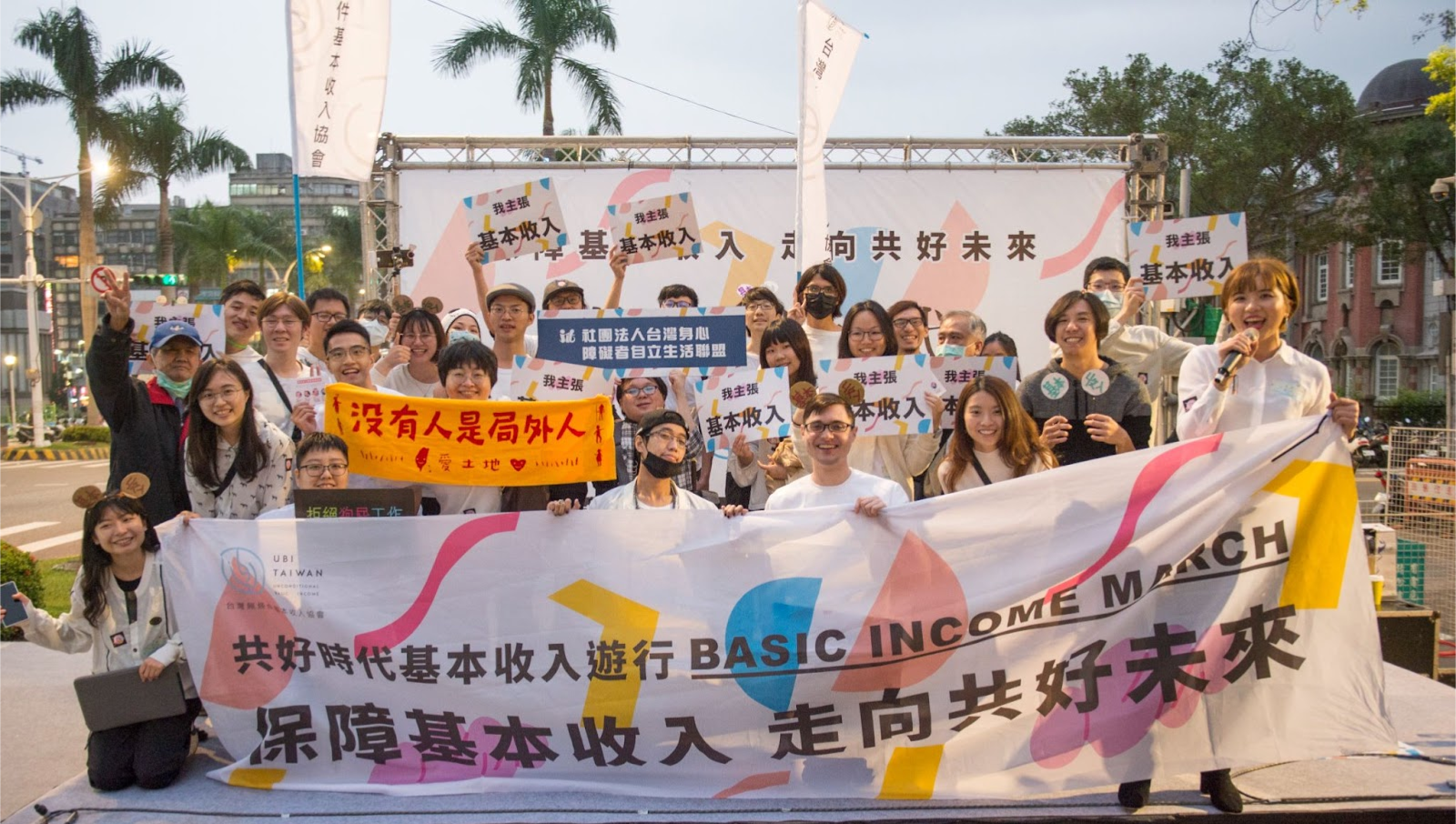
by Tyler Prochazka | Jan 17, 2023 | Featured
Taiwan is making history by sending out a one-time universal cash payment of $6,000 New Taiwan dollars (NTD) to every citizen “young and old.” This is the first time the country has implemented such a policy, and it comes as a result of excess tax revenue of $450 billion NTD, much of which is coming from corporate taxes that have seen record-high profits. $140 billion NTD will be dedicated to the cash payments, with the remainder going towards improving labor and health insurance systems and providing funding for local governments.
UBI Taiwan hailed the move as a victory for Taiwanese citizens, as the payment is unconditional and universal, meaning that everyone in the country will receive it, regardless of income or other circumstances. They said it reflects the growing demand that a greater proportion of Taiwan’s growth is shared with average families.
“This is a huge victory for the basic income movement,” UBI Taiwan founder Tyler Prochazka said.
UBI Taiwan promotes unconditional basic income (UBI) in Taiwan. UBI is a policy that periodically sends out unconditional cash payments to every citizen in a country regardless of an individual’s income or job status.
The organization has noted the problem of stagnant wages for the last two decades in the country and the rising cost of housing. Through basic income payments, they argue that many Taiwanese could pursue better opportunities and improve their education.
“Unconditional cash transfers are an efficient way to provide an ‘economic vaccination’ to make sure that everyone can face the future in a healthy and happy manner,” said Jiakuan Su, the new chairman of UBI Taiwan.
Over the last few years, Taiwan’s economy has experienced record-breaking 6.45% GDP growth in 2021 and over 8.73% growth in exports in 2022. However, most people have not enjoyed the fruits of this economic growth, as a 104 Job Bank survey found that real wage growth was nearly zero in 2022 due to inflation. The universal cash payment is a way for everyone to have a small share in Taiwan’s economic success.
“With the rise of the pandemic over the last few years, Taiwan has experienced rapid changes in its economy and society,” Su said. “We have experienced directly why Taiwan needs a resilient social welfare system to protect each person’s economic security.”
Since the payment is equal to all taxpayers, it will have a progressive effect with a greater proportion of the refund going to low-income earners. There is some expectation that the cash payment could help stimulate the economy because low-income households are more likely to use the money to satisfy their essentials, such as food and housing, freeing up some additional discretionary money for recreational uses as well. A greater willingness to spend by average families could help smaller businesses that may have struggled since the pandemic.
Both political parties have agreed on the general outline of the proposal and the cash could be sent out as soon as February. A surprise has been that the plan appears to be a universal rebate of the revenue instead of a targeted one, which will make it easier for everyone to apply and reduce administrative costs and time. One area still under consideration is whether foreign taxpayers will receive any of the money.
Previous cash assistance schemes during the pandemic were targeted and a stimulus voucher was sent universally. The pandemic vouchers were limited in how they could be spent and had an expiration date, similar to the vouchers under former President Ma Ying-Jeou.
Members of the Kuomintang (KMT) and Taiwan People’s Party (TPP) argued during the pandemic that cash should have been sent out instead of vouchers. At the time, the TPP held a news conference with UBI Taiwan to discuss the benefits of cash over vouchers. Many also complained that the targeted cash programs were difficult to receive because of the strict conditions.
Research by the World Bank later demonstrated that the simplicity of universal and unconditional cash payments during the pandemic increased access to the assistance and likely provided economic stimulus. Previous research showed a multiplier effect up to $2.6 for every dollar sent. Fears of saving the cash were largely overblown. For example, in over a dozen economies primarily in East Asia, 40 percent of the universal cash transfers during the pandemic were directly used for consumption.
Besides improved standard of living, research on basic income consistently shows improved mental health and trust in society. A meta-analysis of basic income policies looked at eight governmental reports as well as seven peer reviewed studies. They found there was justification that the alleviation of stress from financial instability could be a reason for improved mental health from basic income.
There have been criticisms of the current cash payment plan, including concerns about inflation. However, it is important to remember that this is surplus tax revenue that has already been collected and is not new money created by the central bank. An effect on inflation is just as likely if the government directly spends the money or if it is sent back to taxpayers.
Additionally, while it is true that Taiwan’s insurance systems require further reforms for sustainability, the vast majority of the surplus revenue is being used to shore up these systems and provide an emergency fund. A one time injection of funds is helpful but will not save these systems in the long run.
Previously, basic income advocates from UBI Taiwan have suggested that Taiwan could establish a sovereign wealth fund (SWF). Such a fund would act as a guarantee that Taiwanese could enjoy more equity in the growth of Taiwan’s economy even if wages remain stagnant. Excess revenue could be placed in the SWF and invested in the economy, with dividends from the SWF distributed back to the people each year, similar to the system in the US state of Alaska. The Alaska Permanent Fund sends out a yearly payment from the oil revenue generated in the state. In 2022, the universal payout reached a record high of $3,284 USD.
“I applaud the government’s decision to send the universal cash transfer and hope this establishes the precedent for Taiwan to consider making this a permanent policy,” Su said.
Prochazka furthered that by making this payment equal to all citizens, the government is taking the “first small step” towards ensuring that the benefits of economic growth are shared by all.
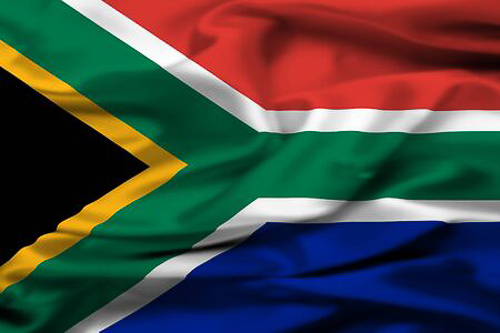
by Peter Knight | Aug 25, 2022 | News
Readers and BIEN members might be interested in a new book, IN THE BALANCE: The Case for a Universal Basic Income in South Africa and Beyond, which has just been published and is drawing good reviews.
It’s available from online retailers, New York University Press (for North America and Europe) and Witwatersrand University Press (for Africa). An open access PDF version can also be downloaded for free.
Here are a few excerpts from reviews:
“Hein Marais delivers a theoretically powerful, impressively documented, timely and urgent case for radical wealth redistribution …. Crucially, the book supports a basic income not as a policy fix, but as a far-reaching political and imaginative response to the steady collapse of a wage-centered social order. This is a book destined to have lasting influence.”
—Franco Barchiesi, Ohio State University; author of Precarious Liberation: Workers, the State, and Contested Social Citizenship in Post-apartheid South Africa
“If you have been searching for a way to clearly understand the concept of a Universal Basic Income (UBI), then this is the book that you have been waiting for.”
— Awande Buthelezi, coordinator for the #UBIGNOW Campaign and activist with the Climate Justice Charter Movement
“This book is a major contribution to our understanding of the possibility for policies to achieve more equitable levels of well-being in the contemporary political economy of South Africa and the world.”
– Peter B. Evans, Professor Emeritus, Department of Sociology, University of California, Berkeley
And here is a short description:
“As jobs disappear, wages flat line and inequality grows, this timeous book presents a
compelling analysis of the need, conditions and possibilities for a universal basic income (UBI) in South Africa and globally.
Paid work is an increasingly fragile and unattainable basis for dignified life. This
predicament, deepened by the COVID-19 pandemic, is sparking urgent debates
about alternatives such as a universal basic income (UBI). Highly topical and
distinctive in its approach, In the Balance: The Case for a Universal Basic Income in
South Africa and Beyond is the most rounded and up-to-date examination yet of the
need and prospects for a UBI in a global South setting such as South Africa.
Hein Marais casts the debate about a UBI in the wider context of the dispossessing
pressures of capitalism and the onrushing turmoil of global warming, pandemics and
social upheaval. Marais surveys the meaning, history and appeal of a UBI before even
handedly weighing the case for and against such an intervention.
The book explores the vexing questions a UBI raises about the relationship of paid
work to social rights, about prevailing notions of entitlement and dependency, and the
role of the state in contemporary capitalism. Along with cost estimates for different
versions of a basic income in South Africa, it discusses financing options and lays out the social, economic and political implications. This incisive new book advances both our theoretical and practical understanding of the prospects for a UBI.”
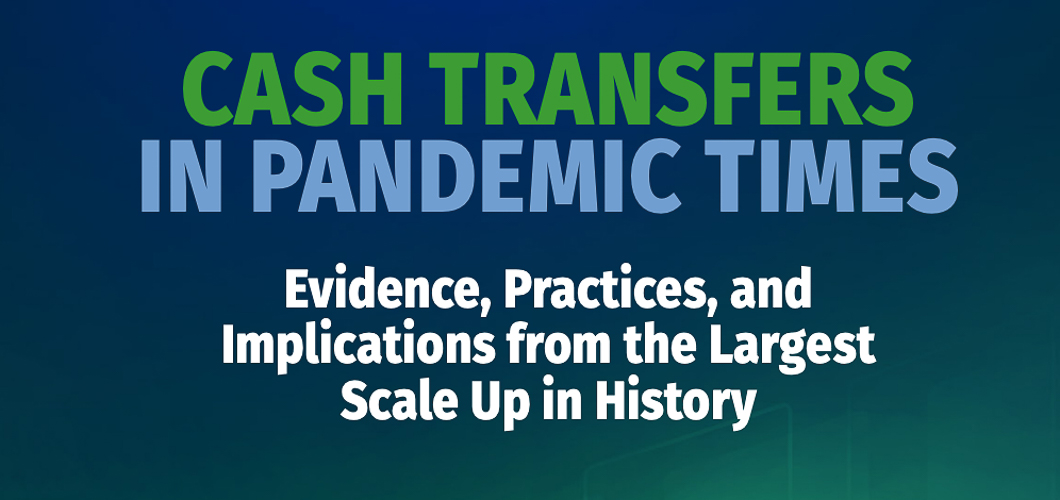
by Peter Knight | Jul 15, 2022 | News
We know the features of the nearly 4,000 social protection responses to Covid-19 globally; but what are we learning from over two years of pandemic measures? A new paper by Ugo Gentilini, Global Lead for Social Assistance with the Social Protection and Jobs Global Practice at the World Bank, brings together large datasets and about 300 papers to assess and reflect upon the largest scale up of cash transfers in history. In particular, the paper flashes out differences between Covid-19 and other crises; it lays out an anatomy of global responses and offers novel data analysis around stylized international trends; synthesizes fresh empirical evidence on response effectiveness based on over 40 evaluations; discusses country level operational practices as emerging from an array of high and lower-income contexts; and distills key 10 insights with possible future implications. You can download the report here or learn more about it from this blog.
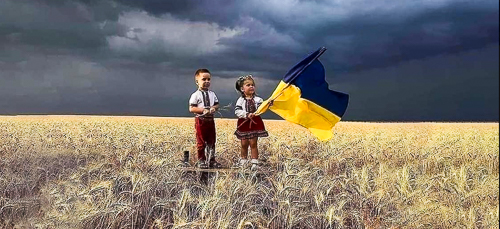
by Guest Contributor | Apr 21, 2022 | Opinion
The idea of Basic Income is catching on around the world as it is getting more and more support, especially after cash payments many countries paid during the Covid-19 pandemic and Russia’s so-called “special military operation” in Ukraine.
A Basic Income is a periodic cash payment unconditionally delivered to all on an individual basis, without a means-test or work requirement. This is the first phrase you can see when you open BIEN’s website. So where should states get money for it? For example, from natural resources, as Alaska Permanent Fund does, and from taxes including a tax on robots, carbon tax, as well as a tax on cryptocurrencies, etc. The view that the state should supplement the income of the poor has a long history. For example, one way to increase the incomes of the poor proposed by Milton Friedman is a negative income tax. The idea is quite simple: richer people pay taxes and poorer ones get some percentage of this.
Ukrainians receive financial aid in the amount of 6500 hryvnias (just over US$200) under the program “ePidtrymka” for loss of part of wages (income), work (economic activity), which are temporarily stopped because of military actions during the current military struggle in Ukraine. It’s just a one-time payment with several strict conditions, including a territorial one. The deadline for submitting applications was March 31, 2022. So, what should other people do after April 1? Why shouldn’t children, women, single parents, young people, the disabled, and the unemployed be taken care of? Every Ukrainian needs to be paid because of the economic collapse and losses of income.
But is $200 enough to help someone who lost a family, home, or job? Is $200 enough to help anyone start life over in Europe or in an almost destroyed country? If this person is gravely ill? What about mental health, which was destroyed, of children, women, and youth? Every Ukrainian needs to be paid at least 500 Euros every month at best for the war’s duration until normal life is fully restored. I believe these brave people deserve more! Ukrainian people should be rewarded with UBI forever. This will be the greatest social experiment in history as well as a clear example for other countries and peoples.
Not only thousands of Ukrainians but also thousands of Russians are dying because of the actions of the Russian authorities. Let’s remember the dramatic events in Bucha, Ukraine, and in other cities. The Ukrainian government suspects soldiers from Khabarovsk, Buryatia, the Far East, and others of committing crimes. These are depressed regions with low incomes and high unemployment, despite their vast territories and natural resources. Residents have little choice: either to serve in the army and security services or to migrate to richer regions of the country. So, these hungry soldiers saw that people in Bucha were living their normal comfortable life. Maybe that’s why they were so cruel? Of course, it’s hard for me to reflect on why they acted like animals. But I strongly believe that they wouldn’t invade another country if they were receiving a basic income.
The situation is similar in other Russian regions like Tuva, Ingushetia, Kabardino-Balkaria Republic, Altai, Jewish Autonomous Region. That doesn’t mean that in other regions the situation is better. Maybe just a little. Official statistics (according to the “new methodology”) indicate that there were more than 16 million people below the poverty line at the end of 2021 in Russia. According to the old methodology, there were more than 20 million people in need. Official Russian statistics are underestimated by two to three times, according to the experts. Anyway, what will happen to Russians after the war and devastating economic sanctions? Of course, I’m not making a comparison between “lost a job” and “lost a life”. However, in my opinion, very few people would participate in an unjust war if they had a basic income and a stable and prosperous life. Therefore, Russians also need a basic income. People would be critical of the propaganda if they have more opportunities.
Ukraine is a brave country that is fighting against Russia’s military intervention and is protecting the entire world from danger. Of course, the other countries support Ukraine. Ukrainians need to be paid basic income. I may repeat it forever. Basic Income has the potential to eliminate the need for war, and that’s why it is important to raise awareness of what Basic Income can do. Ukrainians need to live their calm normal life instead of hiding in their basements as they do right now. Millions of people were forced to flee Ukraine, many had to bury their children or parents in the yards. Nobody knows their feelings. I hope that nobody will ever do that again.
The war has affected the entire global community. Does the world forget the Chernobyl accident in 1986? Doesn’t the world read or hear about Russian soldiers in the Chernobyl nuclear power plant? Quoting a CNN report, “Although Chernobyl is not an active power plant, the sarcophagus above the reactor that exploded nearly 36 years ago needs to be maintained to avoid further radiation leaks. There is also a considerable amount of spent nuclear fuel that needs to be looked after”.
These miserable soldiers were ordered to dig trenches in that area, which is particularly radioactive. This zone right now is under the control of Ukrainian soldiers, but Russian soldiers may come back. This may be a bigger ecological problem than CO2 emissions for the whole world. What about the threat of Russian use of tactical nuclear weapons? Why do people worry about CO2 while so many people keep dying right now: young, old, children, men, and women? What could happen to the world after nuclear weapons are used?
Ukraine is a strong country. We are proud as well as terribly sorry about all the events that happen there. Crying and praying for it to end soon, to stop people’s unfair death. This is the whole world’s inexcusable mistake. We could have avoided so many deaths if a Basic Income had been introduced to the world. UBI will reduce humanity’s aggression and destroy the economic, political, and psychological causes of war.
Instability in the world is increasing. Food, gasoline, gas, and service prices are increasing all over the world, including in Africa and Asia. I know that heating prices are high right now in Europe. Soon it will be summer, but later fall and winter will come. The whole planet suffers from Russian military action in the center of Europe and is terrified at the thought of a world nuclear war. We should think about basic income today. No, that’s not right. We should have thought about it yesterday before these disasters. The 99% shouldn’t suffer from the decisions of the 1%. People need to be more independent from the government.
Article by: Irina Soloveva, Jr.






